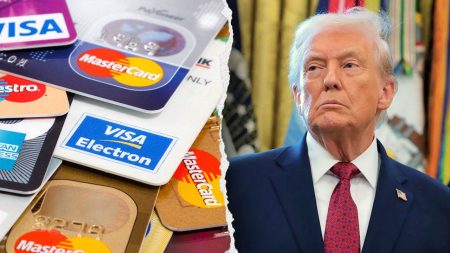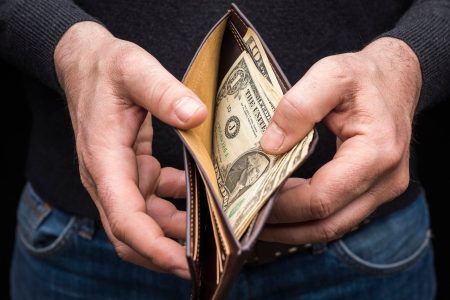The Consumer Financial Protection Bureau (CFPB) has said it wants to change how much consumers are charged late fees, but industry experts have said the change could cost those who pay their bills on time.
The CFPB recently announced an extension of the comment period for proposed changes to credit card late fees regulations to May 3, 2023. In February, the consumer watchdog announced the proposal to amend the existing provision to late fees. It proposed to cap late fees to 25% of the required payment and end the automatic inflation adjustment for these charges.
Credit card companies could still charge late fees, but under the new provision, they must prove that their fees align with their collection costs. The move to lessen late fees could save millions of Americans as much as $9 billion a year, the White House said in a press release.
Congress initially banned exorbitant late fees in 2009. However, the Federal Reserve Board (FRB), the body responsible for putting the law into action, added an immunity provision that created a regulatory loophole that companies used to avoid scrutiny for charging these late fees, according to the CFPB.
“Interest rates on credit cards have risen substantially, with average interest rates going over 20%,” CFPB Director Rohit Chopra said in a blog. “Given the trends for the 175 million Americans with credit cards, the CFPB estimates that outstanding credit card debt may continue to set records and could even hit $1 trillion.
“As credit card issuers hike rates, the CFPB is working across the board to make sure that Americans can shop in a competitive market and reduce their costs,” Chopra continued.
If you are struggling to pay off debt, you could consider using a personal loan to consolidate your payments at a lower interest rate, saving you money each month. You can visit Credible to find your personalized interest rate without affecting your credit score.
HOME PRICES EXCEEDED INFLATION BY MORE THAN 200%: HOME BAY
Changes could penalize ‘responsible’ consumers, industry experts say
Experts who oppose the late fee changes have said they are concerned that existing credit card users, who pay their bills on time, could be penalized.
The majority of Americans don’t make late payments and wouldn’t see any cost savings, but they could carry the brunt of increased costs arising from card issuers having to recoup that money in other ways, according to Bill Hulse, a vice president at the U.S. Chamber of Commerce’s Center for Capital Markets Competitiveness.
Consumers could also have fewer choices because credit card issuers could respond to the changes by reducing credit lines, tightening standards for new accounts and raising APRs for all consumers. The changes could also mean an end to popular perks such as rewards, discounts on groceries and gas, and travel perks with airline and hotel partners, Hulse said.
“If the Consumer Financial Protection Bureau wants to protect consumers, it shouldn’t raise costs on responsible consumers who pay on time,” Hulse said in a statement. “The proposed rule is harmful and misguided, and the agency should withdraw it at once.”
Reducing the late fee cap to $8 would also squeeze the already narrow margins under which credit unions operate, according to the National Association of Federal Credit Unions (NAFCU) Chief Economist Curt Long.
“Fees are lower due to credit unions being not-for-profit, member-owned cooperatives and costs are higher due to economies of scale,” Long said in a recent video.
As a result, a cap could reduce the extension of credit to high-risk borrowers, according to Long. Nearly 40% of member credit unions said they would charge high fees on other products to recoup losses, according to Long.
If you have high-interest debt, a personal loan could help you pay it off at a lower rate. You can check out the Credible marketplace to compare multiple personal loan lenders at once and find the right option for you.
THESE STATES’ STUDENT LOAN FORGIVENESS PLANS WOULD WORK EVEN IF BIDEN’S FAILS
Consumers believe credit card late fees are legitimate, survey says
Over half (57%) of Americans said they believe that credit card late fees are legitimate, a recent survey by the Consumers Bankers Association said. Additionally, 76% said that making payments on time payments is a personal responsibility and that late fees are a penalty for missing that payment.
Of the 85% of Americans who have a credit card, 99% said that it is important to pay their credit card bill on time and 74% said they know that their bank charges a fee for late payments on top of interest, according to a separate North Star Opinion Research survey of registered U.S. voters. Further, many Americans reported feeling worried about the potential consequences of reducing late fee charges.
“Voters understand the importance of paying their credit card bills on time, understand the consequences of not doing so, and are wary of the trade-offs involved were late fees to be lowered,” North Star said. “Simply put, the current system is working well for consumers, and does not need any changes.”
One way to reduce your monthly expenses is to pay off high-interest debt. You could consider using a personal loan to help you do so at a lower interest rate, saving you money each month. You can visit Credible to compare multiple lenders at once and choose the one that’s the best option for you.
CASH-STRAPPED AMERICANS ARE EARNING AN EXTRA $52B MONTHLY BY DOING THIS
Have a finance-related question, but don’t know who to ask? Email The Credible Money Expert at [email protected] and your question might be answered by Credible in our Money Expert column.
Read the full article here













